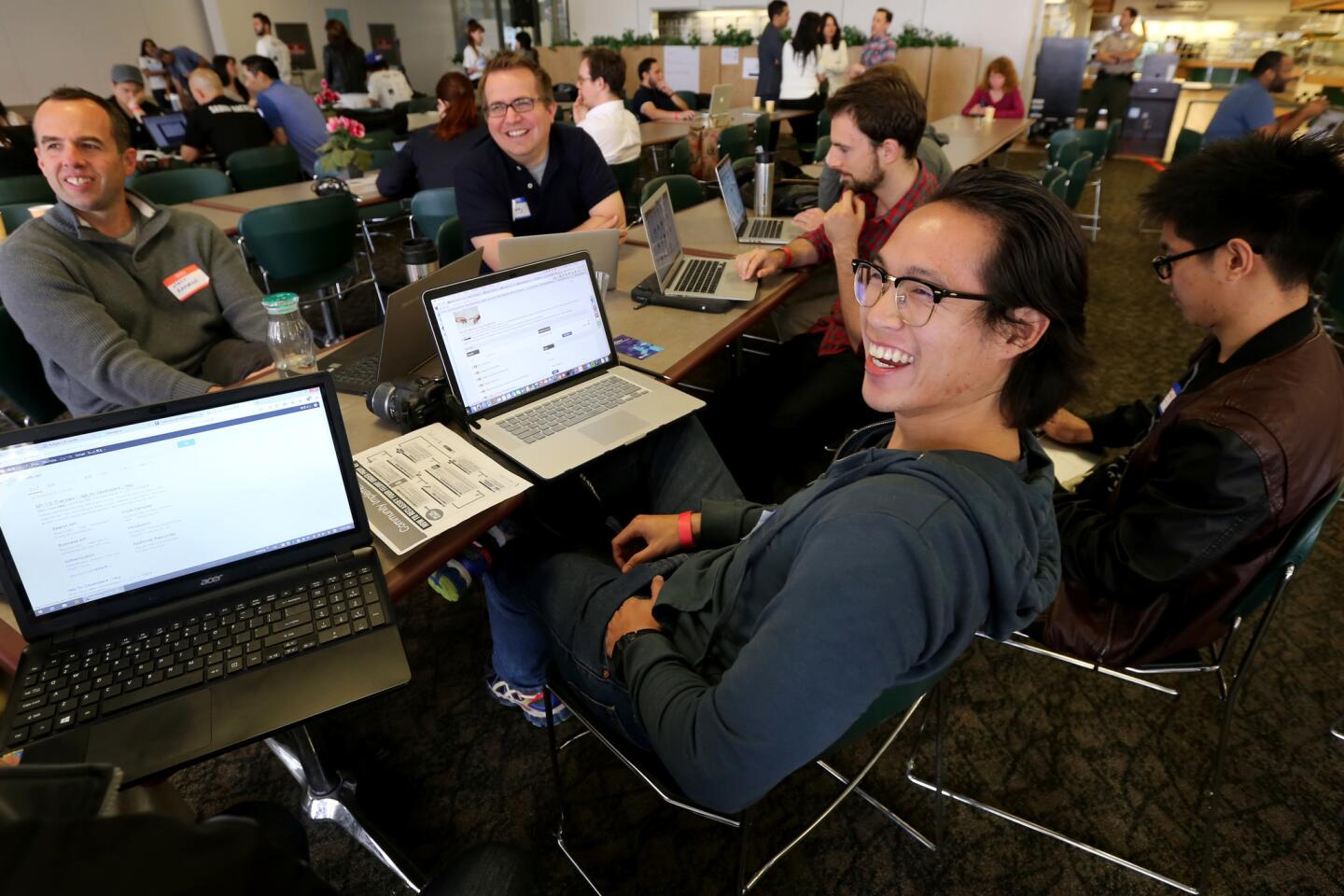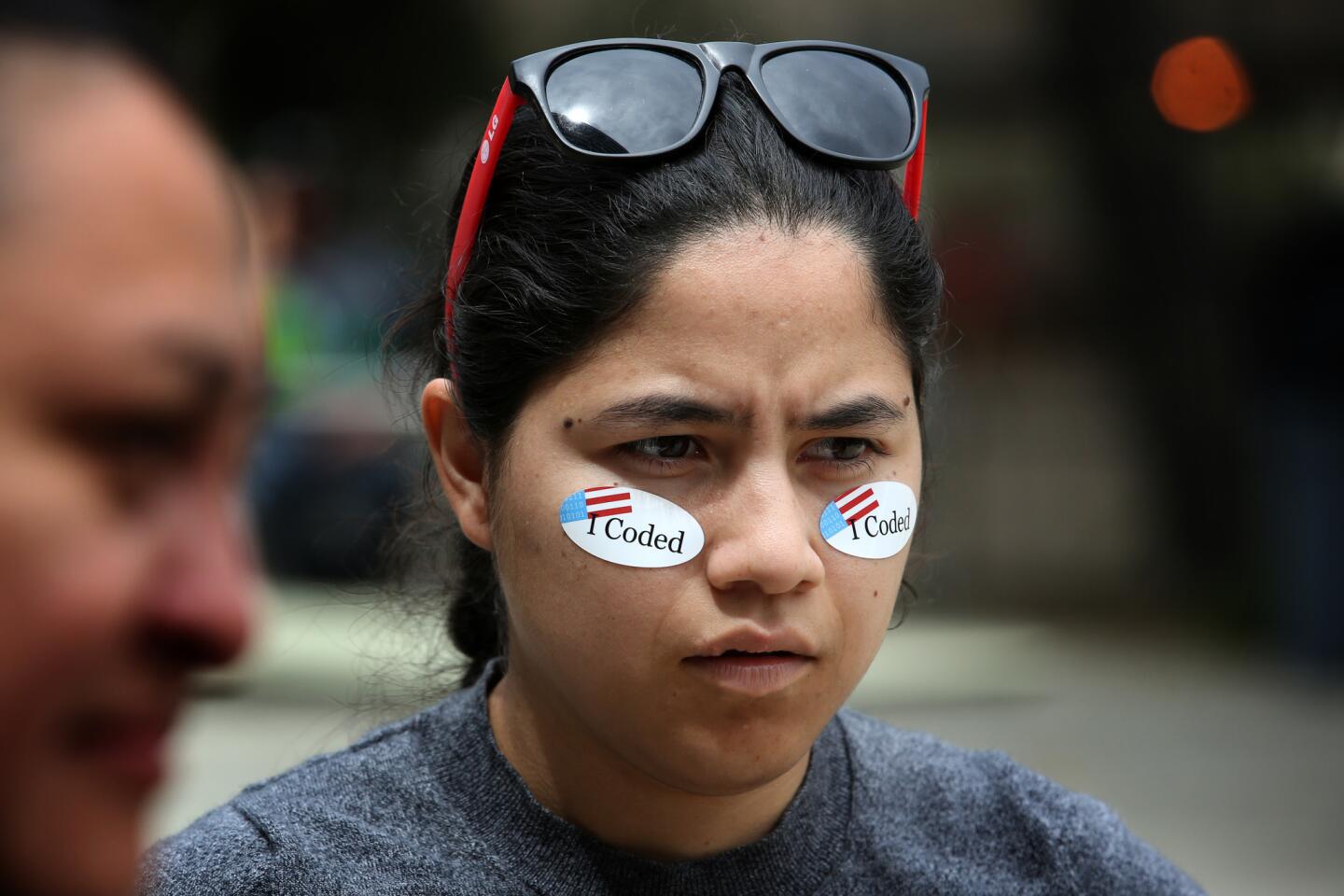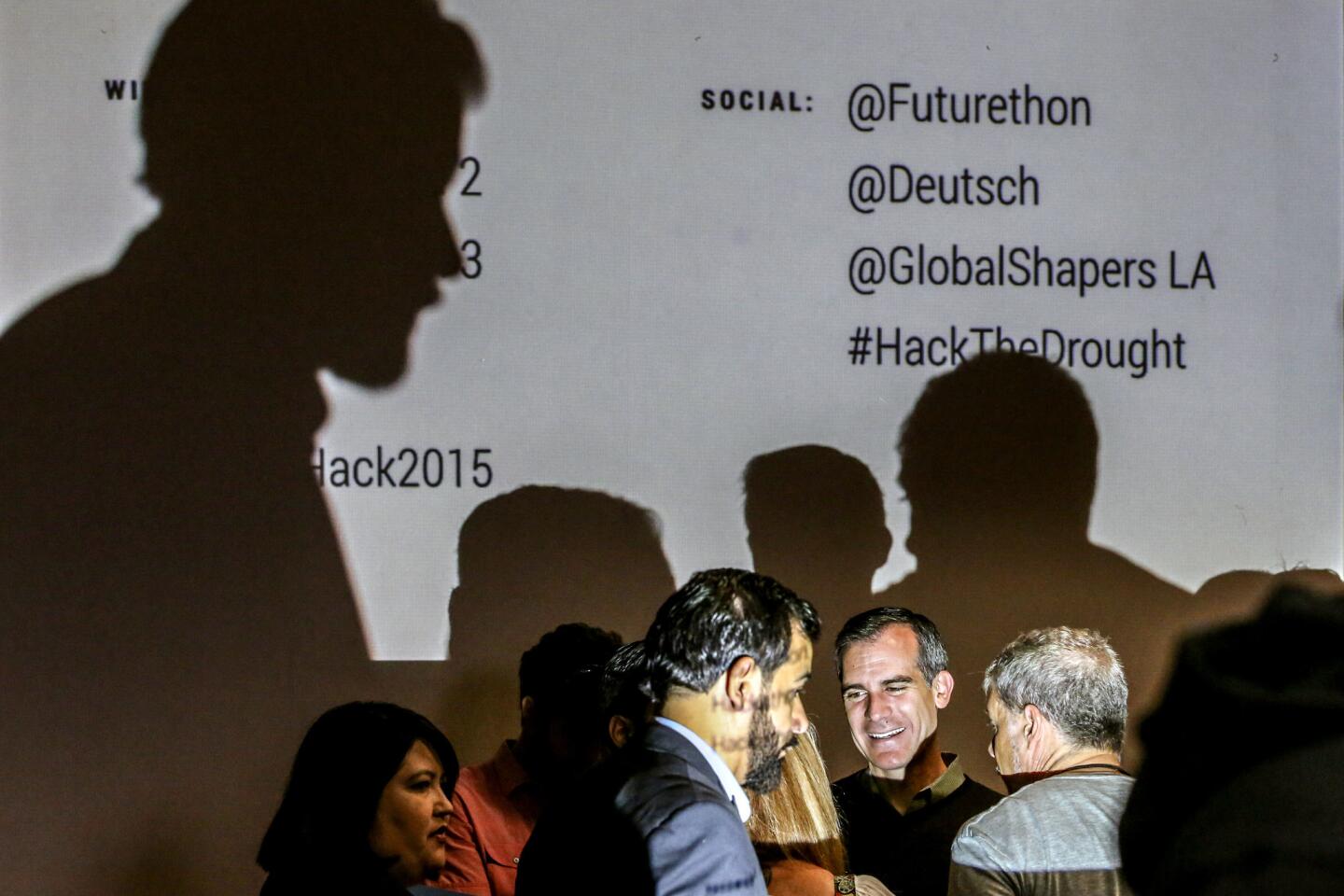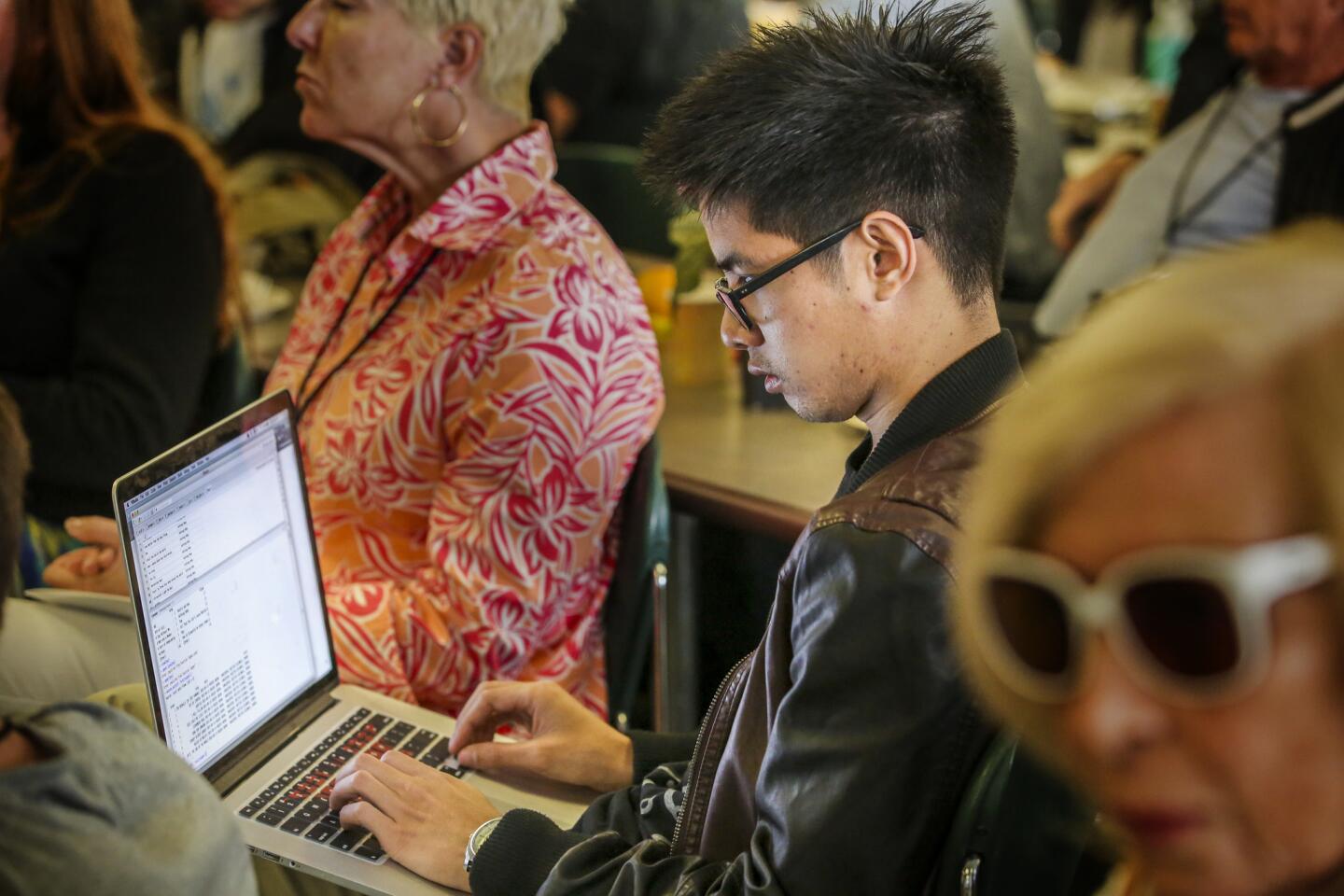At L.A. ‘hackathon,’ civic-minded coders aim to put city data to good use
- Share via
Peeking over the tops of their laptop screens, Ray Salazar and Onjefu Efada tossed around ideas about how to help Angelenos better connect with their government.
“They don’t know who their representatives are,” which makes it difficult for them to report problems, such as pollution or bad roads, said Efada, a software developer.
As they talked over the clicking of keyboards, the pair considered building a smartphone app that would have users enter their address to quickly determine which elected officials — such as council members and state legislators — represent them, and how to contact them. The app might include a template email that users could fill out and send to their representative, said Salazar, an information security analyst.
Salazar and Efada were among hundreds of computer coding experts who delved into data on Los Angeles water usage, transportation, health and more as L.A.’s civic “hackathon” kicked off Saturday at the Department of Water and Power headquarters downtown. Most of the coders were hunched over laptops, with water bottles and coffee cups within reach.
The two-day event aims to use the skills of the city’s technology sector to improve residents’ qualify of life, said Los Angeles Mayor Eric Garcetti, who sees the event as part of a push to make city government more transparent.
Since he took office in 2013, Garcetti has published city information online on topics such as bicycle lanes and graffiti cleanup, and he hired the city’s first chief data officer.
“Are you ready to solve some of L.A.’s biggest challenges?” Garcetti asked the crowd Saturday morning. He also asked audience members to shout out their ages, and identified the youngest participant, 14, and the oldest, 84.
Saturday also marked the third National Day of Civic Hacking, which is hosted in part by the White House and encourages people to create apps and services using public data. This year, Los Angeles’ event was the largest registered.
Projects will be judged Sunday and a total of $3,500 in cash prizes will be awarded to the winners, said Anthony Rollins, an organizer with Hack for LA, which co-hosts the event with city officials.
Standing and gazing at her table papered with diagrams and lists, software engineer Machiko Yasuda and her team were working on fixing L.A.’s perennial problem: commuting.
The team members were planning how to build an app that would display the best mode of transportation to get somewhere by combining data on the location of bike lanes and bike racks, the price of parking, neighborhood walkability, and subway routes and fares.
She also wanted users to be able to input where they were arriving from, so they could find out if there were an opportunity to carpool and split parking costs. The app could be used for events, parties, offices and schools, she said.
A few tables over, Ruby Guillen was preparing to hunker down with her team.
Guillen, a Los Angeles County children’s social worker, wants to create an anti-bullying app so kids have a way to immediately and anonymously report bullying at schools.
There currently isn’t enough data on bullying, she said. But if kids begin notifying officials through an app, that will generate data — and therefore a more complete picture — on where and when bullying occurs, which will help create a more systematic solution to the problem, she said.
“If our app saves one kid then, guess what, we did our job,” she said.
soumya.karlamangla@latimes.com
Twitter: @skarlamangla
More to Read
Sign up for Essential California
The most important California stories and recommendations in your inbox every morning.
You may occasionally receive promotional content from the Los Angeles Times.


















